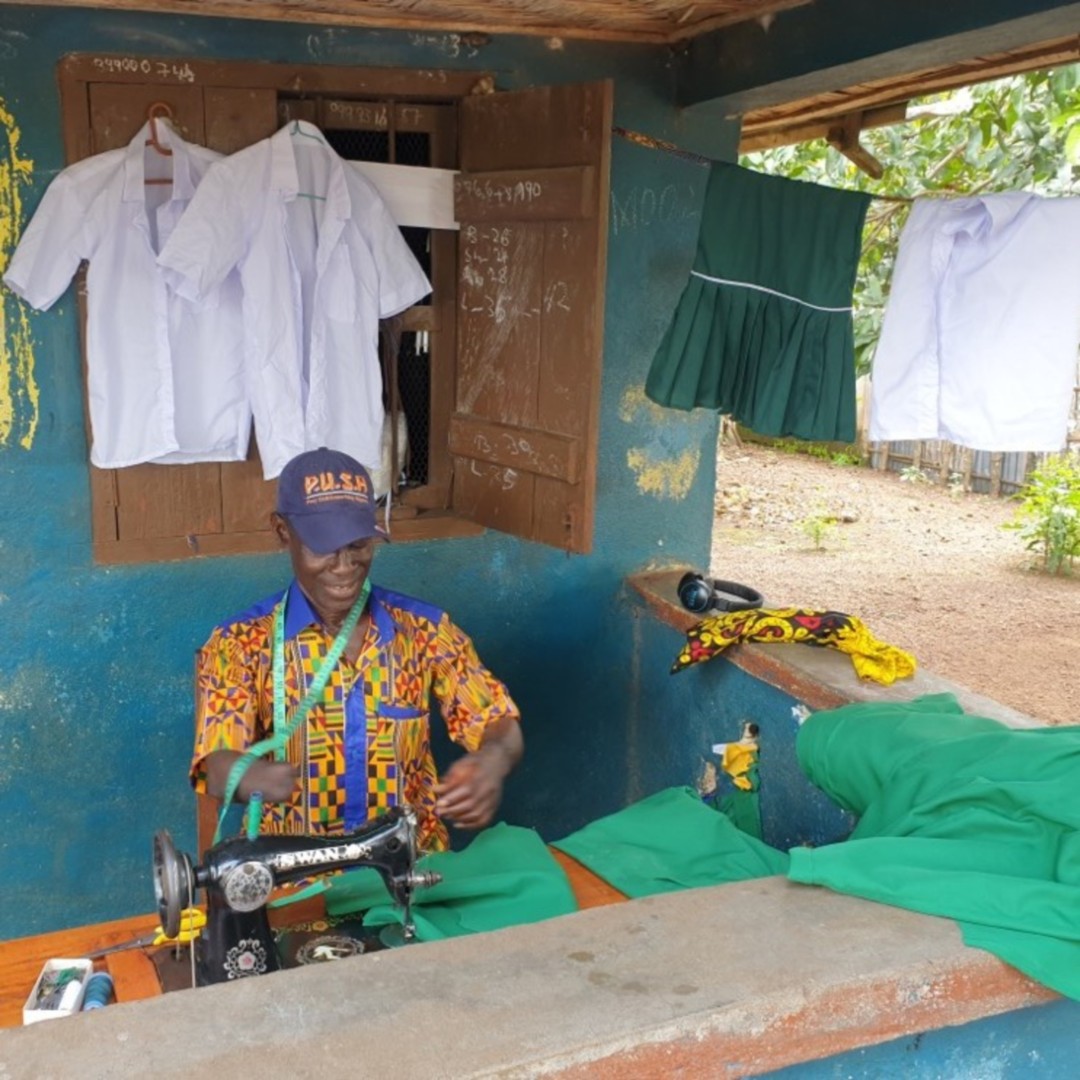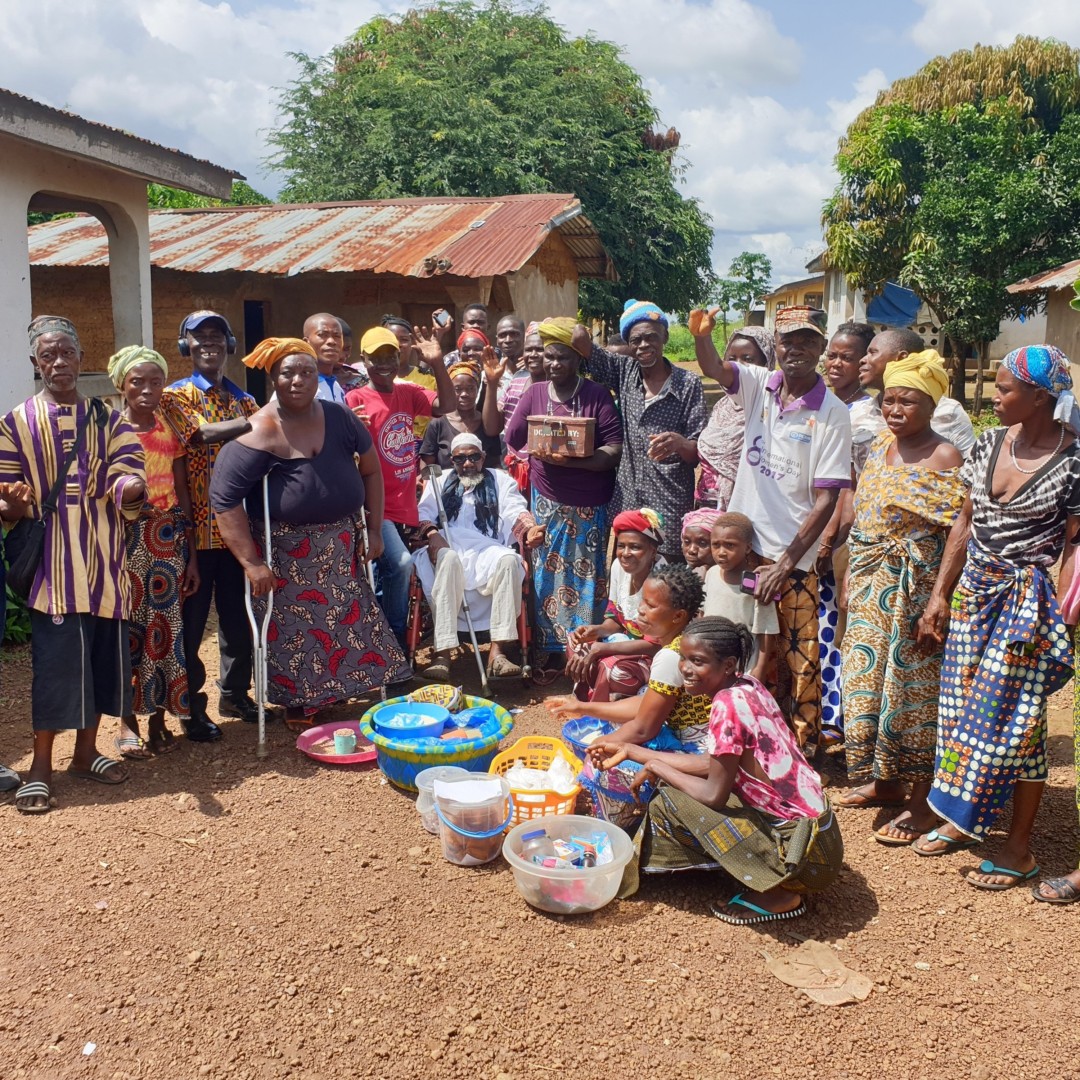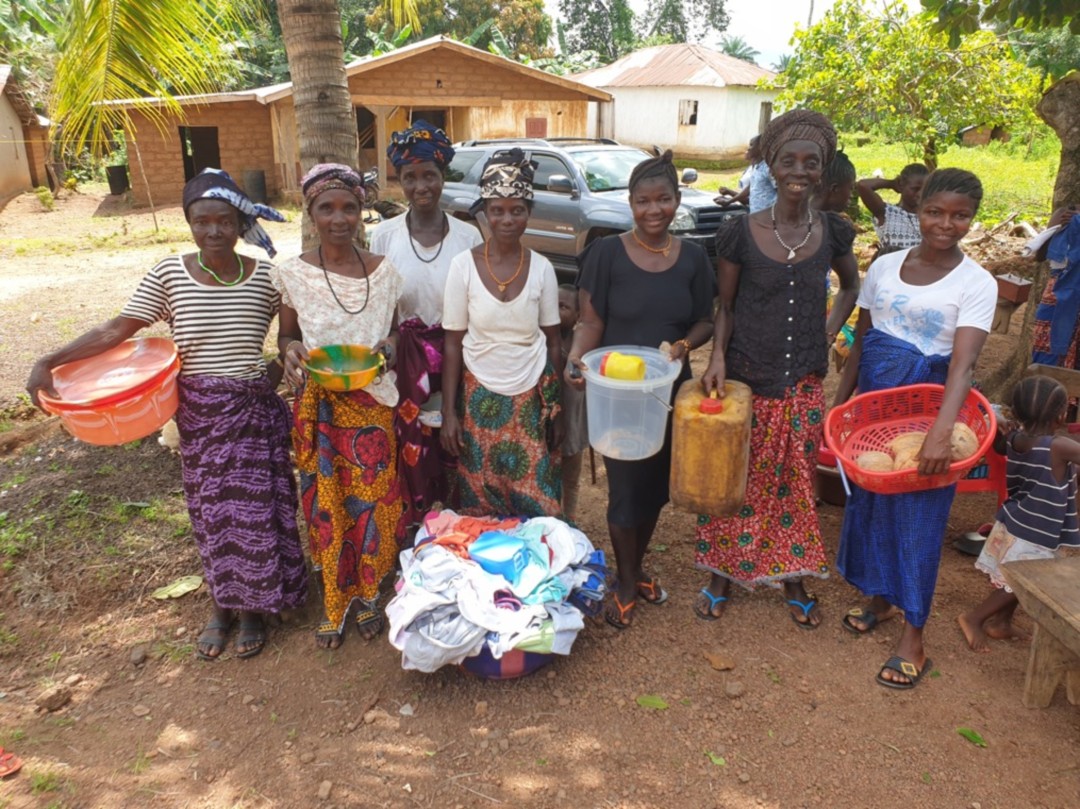Livelihood support for people with mental health issues
2 March 2023
The livelihoods project commenced in July 2021, building on the community mental health work that Network for Africa (N4A) and Conforti Community Aid Children Organisation Port Loko (Conforti) have done since 2018, across Bakeloko, Kasseh and Maforki chiefdoms. The livelihoods programme is being conducted for the 9 self-help groups (SHGs).
By December 2022, each of the SHG members had saved an average of $14, contributed $12 to their group VSLA capital (from which funds are loaned to group members), and contributed an average of $0.75 to the collective fund, used for group meeting expenses. Overall, the value of the SHGs’ savings plus capital has increased from $4,382 in December 2021, to $9,407 in December 2022 – an increase of 115%. One of the groups has the ambition to finance a community development project when they have enough money saved collectively – their whole village has only one single water well (their second well has been in a state of disrepair since before the pandemic), and they would like to build a second such well for the village.
Even though the SHGs only received their livelihoods during a severe economic crisis, they have still made remarkable progress. Most are engaged in petty trading – buying wholesale items in the market and selling them in smaller quantities – while some are growing crops in addition.
Improved livelihoods have had a particularly notable impact on the war survivor amputees and their families who have their own SHG, and are part of another, for whom livelihoods inputs and support have given a huge boost to their self-esteem – they spoke proudly of no longer begging on the streets. And it is a huge development that they will now allow an outsider (such as from N4A) into the amputee camp, such had been their hostility and cynicism before towards NGOs who made promises and didn’t deliver. SHG members are using much of what they earn to pay for their children to attend school.
The counsellors supported 221 clients (91 males, 130 females) with counselling during the first 6 months of 2022, of whom 97 were continuing clients from year 1, and 124 were new clients who were signed up in year 2. Most referrals of new clients came from family or friends who had themselves been supported by Conforti or attended health education sessions, followed by referrals from traditional healers, which is promising. Of the clients counselled during the reporting period, 41% were diagnosed with depression, 24% with stress, 20% had epilepsy, and the rest were suffering from substance abuse, PTSD, anxiety or psychosis. The counsellors also conducted home visits to their clients, to offer group counselling to families, and to help families support their relative with mental illness and/or epilepsy. Of Conforti’s counselling clients, 53% have exhibited a reduction in anxiety symptoms (measured using an adapted version of the GAD-7 Generalised Anxiety Disorder Assessment), and 31% have experienced a reduction in depression symptoms (measured using an adapted version of the CORE-10 Clinical Outcomes in Routine Evaluation).
The counsellors have noted a recurring issue facing women who have post-natal depression and exacerbating their mental ill health, whereby their husbands/partners leave them once they fall pregnant and do not return until after their baby has stopped breastfeeding. The counsellors are working with our mental health specialist to develop greater engagement with men to address this issue, though it is a challenge. This work is highly sensitive and must be done in a way so as not to accuse men of wrongdoing, but rather to empower them to be supportive of their partners and families. This has commenced in January 2023.




